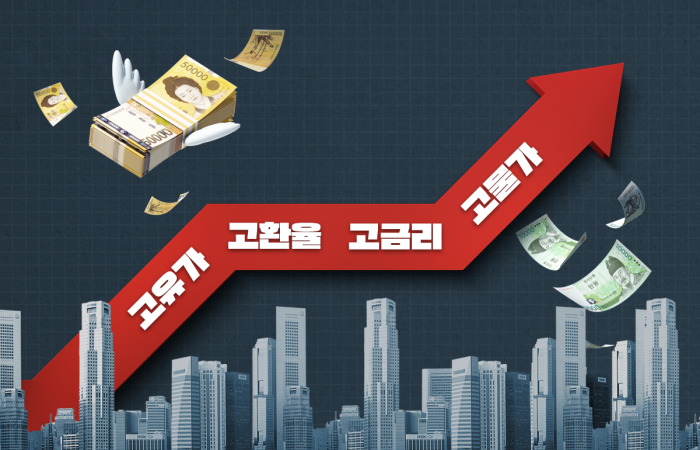
South Korea's consumer prices have risen for the second consecutive month, reaching the 2% range, fueling concerns about inflation. In particular, the surge in living costs, driven by high exchange rates and elevated oil prices, has reached a seven-month peak. Amidst growing uncertainties stemming from the impeachment situation and the potential for a tariff war under a second Trump administration in the U.S., there are concerns that a persistent high exchange rate could exert additional inflationary pressure.
February Consumer Price Trends
According to the "February Consumer Price Trends" released by Statistics Korea, the consumer price index for February stood at 116.08 (2020=100), marking a 2.0% increase compared to the same month last year. While the rate of increase has slightly moderated from January's 2.2%, it has remained within the 2% range for two consecutive months.
Surging Living Costs
Although overall price indicators have shown a stable trend, the living cost index, which reflects price fluctuations in 144 essential goods, surged by 2.6%, the highest increase since July of the previous year. This surge was largely attributed to a 6.3% rise in oil prices.
Rising Food Prices
Dining-out prices increased by 3.0%, contributing 0.43 percentage points to the overall price increase, while processed food prices rose by 2.9%, marking the highest increase since January of the previous year. Although the fresh food index fell by 1.4%, turning negative for the first time in 35 months, livestock and seafood prices continued to experience significant increases.
Food Industry Price Hikes
Due to rising raw material costs and exchange rates, price increases in the food industry are expected to continue for the foreseeable future. Nongshim plans to raise the ex-factory prices of 17 ramen and snack products, including Shin Ramyun and Saewookkang, by an average of 7.2%, and other companies such as Lotte Wellfood, SPC Paris Baguette, and CJ Foodville Tous Les Jours have already implemented price increases.
Future Outlook and Response
The Bank of Korea has warned that inflationary pressures could intensify due to high exchange rates and trade wars. The Ministry of Economy and Finance is closely monitoring uncertainties such as exchange rates and international oil prices, while also implementing measures to stabilize prices, including applying tariff quotas to key food and feed ingredients, and supporting the stockpiling, release, and discount of agricultural and fishery products.
[Copyright (c) Global Economic Times. All Rights Reserved.]






























